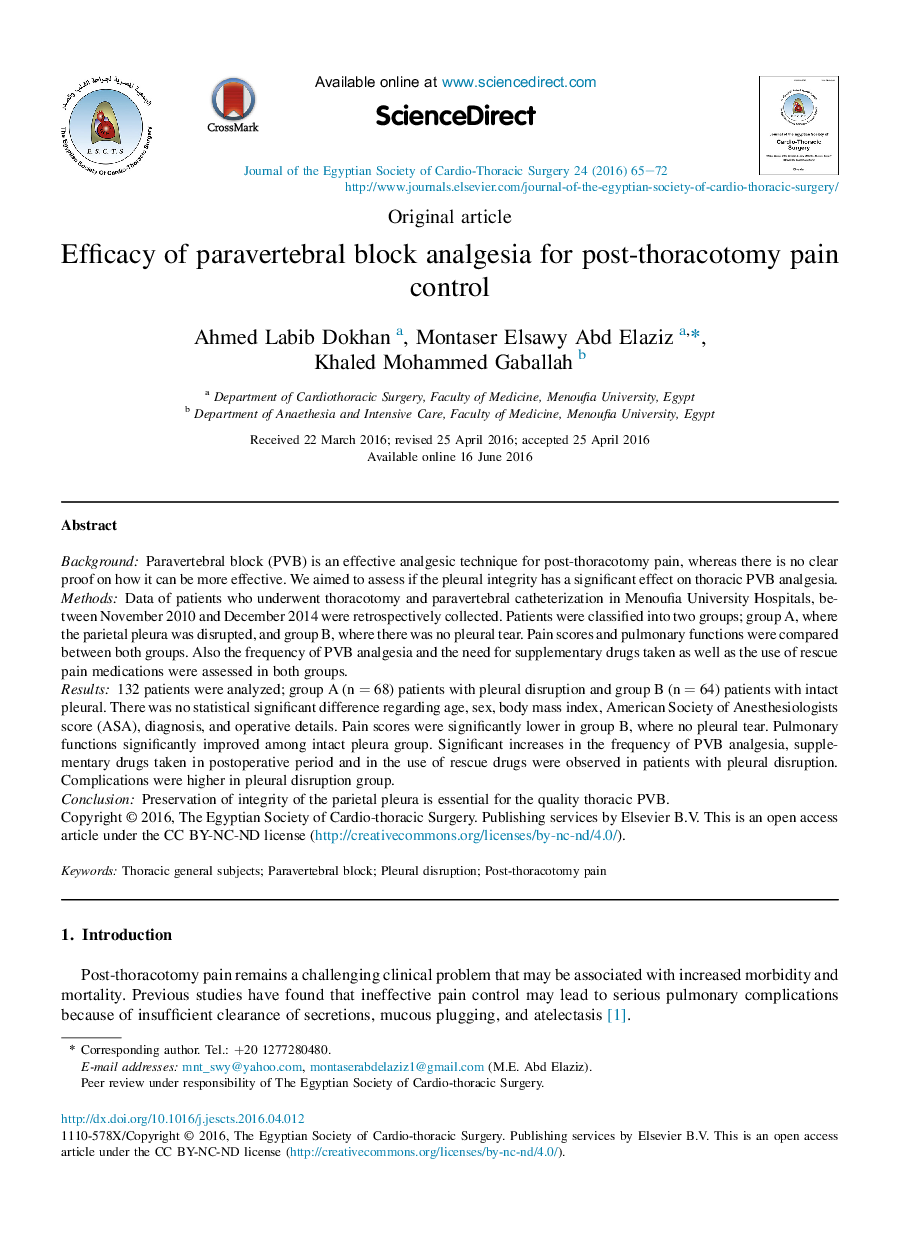| Article ID | Journal | Published Year | Pages | File Type |
|---|---|---|---|---|
| 2967282 | Journal of the Egyptian Society of Cardio-Thoracic Surgery | 2016 | 8 Pages |
BackgroundParavertebral block (PVB) is an effective analgesic technique for post-thoracotomy pain, whereas there is no clear proof on how it can be more effective. We aimed to assess if the pleural integrity has a significant effect on thoracic PVB analgesia.MethodsData of patients who underwent thoracotomy and paravertebral catheterization in Menoufia University Hospitals, between November 2010 and December 2014 were retrospectively collected. Patients were classified into two groups; group A, where the parietal pleura was disrupted, and group B, where there was no pleural tear. Pain scores and pulmonary functions were compared between both groups. Also the frequency of PVB analgesia and the need for supplementary drugs taken as well as the use of rescue pain medications were assessed in both groups.Results132 patients were analyzed; group A (n = 68) patients with pleural disruption and group B (n = 64) patients with intact pleural. There was no statistical significant difference regarding age, sex, body mass index, American Society of Anesthesiologists score (ASA), diagnosis, and operative details. Pain scores were significantly lower in group B, where no pleural tear. Pulmonary functions significantly improved among intact pleura group. Significant increases in the frequency of PVB analgesia, supplementary drugs taken in postoperative period and in the use of rescue drugs were observed in patients with pleural disruption. Complications were higher in pleural disruption group.ConclusionPreservation of integrity of the parietal pleura is essential for the quality thoracic PVB.
